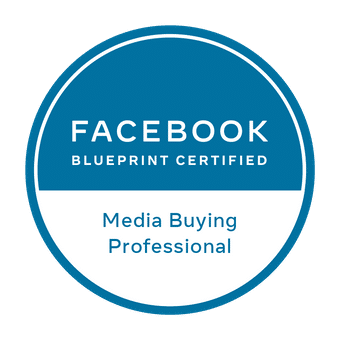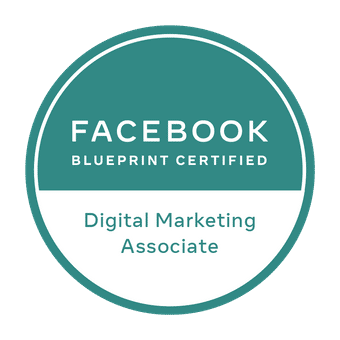
When running Google Ads campaigns, one of the most critical decisions you’ll make is selecting the right keyword match types. The choice between exact match, phrase match, and broad match can significantly impact your ad performance, cost-per-click (CPC), and overall return on investment (ROI). At Blue Farm Google Ads and SEO Management, we’ve helped countless Florida businesses optimize their Google Ads strategies, and understanding keyword match types is a foundational element of success.
In this guide covering which Google Ads keyword type is best, we’ll break down each match type, compare their strengths and weaknesses, and help you determine which one is best for your campaigns. By the end, you’ll have a clear understanding of how to leverage these match types to maximize conversions while minimizing wasted ad spend.
Understanding Google Ads Keyword Match Types
Google Ads offers three primary keyword match types: exact match, phrase match, and broad match. Each one controls how closely a user’s search query must align with your chosen keywords before your ad appears. Choosing the right match type depends on your campaign goals, budget, and how much control you want over your targeting.
What is Exact Match in Google Ads?
Exact match keywords are the most restrictive option. Your ad will only show when someone searches for the exact keyword or a very close variation of it. Google has loosened exact match restrictions over the years, allowing for minor changes like plurals, misspellings, and word order adjustments.
For example, if you bid on the exact match keyword [blue running shoes], your ad may appear for searches like:
- “blue running shoes”
- “running shoes blue”
- “blue running shoe”
However, it won’t trigger for broader queries like “best running shoes” or “affordable blue sneakers.”
Pros of Exact Match Keywords
Exact match provides the highest level of control, ensuring your ads only appear for highly relevant searches. This precision leads to better click-through rates (CTR), higher conversion rates, and lower wasted spend since you’re targeting users with clear purchase intent.
Cons of Exact Match Keywords
The downside is that exact match keywords can limit your reach. If your keyword list is too narrow, you might miss out on valuable traffic from related searches that could still convert. Additionally, exact match keywords often have higher competition and CPCs because advertisers aggressively bid on them.
What is Phrase Match in Google Ads?
Phrase match keywords offer a middle ground between exact and broad match. Your ad will show when a search query includes your exact phrase or close variations, even if there are additional words before or after it.
Using the same example, a phrase match keyword “blue running shoes” could trigger ads for searches like:
- “buy blue running shoes”
- “blue running shoes for men”
- “best blue running shoes”
However, it won’t match for queries like “blue shoes for running” (word order changes) or “comfortable running shoes” (missing the core phrase).
Pros of Phrase Match Keywords
Phrase match provides broader reach than exact match while still maintaining relevance. It captures more search intent variations without straying too far from your target keywords. This makes it a great choice for businesses that want a balance between precision and volume.
Cons of Phrase Match Keywords
While phrase match is more flexible than exact match, it can still miss some relevant queries that don’t include the exact phrase. Additionally, if your phrase is too generic, you might attract irrelevant traffic, leading to higher costs and lower conversion rates.
What is Broad Match in Google Ads?
Broad match is the most flexible (and riskiest) keyword type. Your ad can appear for any search that Google deems related to your keyword, including synonyms, variations, and loosely connected terms.
For example, a broad match keyword like blue running shoes could trigger ads for searches such as:
- “comfortable sneakers in blue”
- “best shoes for jogging”
- “athletic footwear”
Google’s AI interprets the intent behind the query, which can sometimes lead to unpredictable results.
Pros of Broad Match Keywords
Broad match provides the widest reach, making it useful for discovery campaigns where the goal is to uncover new keyword opportunities. If you have a large budget and want to explore different search queries, broad match can help identify high-performing terms to add as exact or phrase match later.
Cons of Broad Match Keywords
The biggest drawback is the lack of control. Broad match can trigger ads for irrelevant searches, leading to high ad spend with low conversions. Without proper negative keyword management, you risk wasting budget on clicks that don’t convert.
Which Google Ads Keyword Match Type is Best?
The best match type depends on your campaign objectives, industry competition, and budget. Here’s how we at Blue Farm Google Ads and SEO Management recommend using each one:
When to Use Exact Match Keywords
Exact match is ideal for high-intent, high-converting campaigns where precision matters. Use it for:
- Bottom-of-funnel keywords (e.g., “buy [product] near me”)
- High-value products with specific search terms
- Competitor brand terms (if allowed)
- Limited-budget campaigns where every click counts
When to Use Phrase Match Keywords
Phrase match works well for balancing reach and relevance. It’s great for:
- Mid-funnel keywords (e.g., “best [product] for [use case]”)
- Expanding reach without going fully broad
- Capturing long-tail variations of your core keywords
When to Use Broad Match Keywords
Broad match should be used strategically and cautiously. It’s best for:
- Discovery campaigns to find new keyword opportunities
- Large-budget campaigns with strong negative keyword lists
- Dynamic search ad (DSA) campaigns where Google handles matching
Advanced Tips for Optimizing Keyword Match Types
To maximize the effectiveness of your keyword strategy, consider these expert tips:
Layer Match Types for Full Coverage
Instead of relying on just one match type, combine exact, phrase, and broad match in the same campaign or ad group. This allows you to control bids based on match type performance.
Use Negative Keywords to Refine Targeting
Negative keywords prevent your ads from showing for irrelevant searches. If you’re using broad or phrase match, regularly review search term reports and add negative keywords to filter out poor-performing queries.
Monitor Search Term Reports Regularly
Google’s search term report shows which actual queries triggered your ads. Analyze this data to:
- Identify new exact or phrase match keyword opportunities
- Add negative keywords to block irrelevant traffic
- Adjust bids based on high-performing terms
Adjust Bids Based on Match Type Performance
Exact match keywords often convert better but may have higher CPCs. Consider bidding more aggressively on exact match while using lower bids for broad match to control costs.
Final Thoughts: Which Google Ads Keyword Type is Best
There’s no one-size-fits-all answer to whether exact match, phrase match, or broad match is best. The right choice depends on your campaign goals, budget, and how much control you need over your targeting.
At Blue Farm Google Ads and SEO Management, we recommend a hybrid approach:
- Start with exact and phrase match for better control.
- Use broad match cautiously, only with strong negative keyword lists.
- Continuously optimize based on search term performance.
By strategically combining these match types, you can maximize your ad reach while maintaining high conversion rates. If you need help refining your Google Ads keyword strategy, contact Blue Farm Google Ads and SEO Management for expert guidance tailored to your business.







